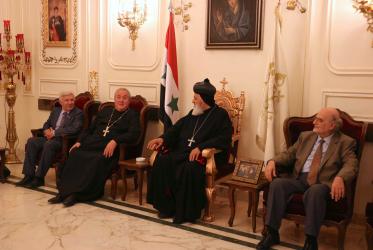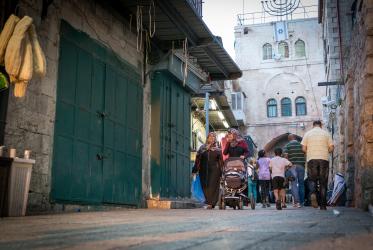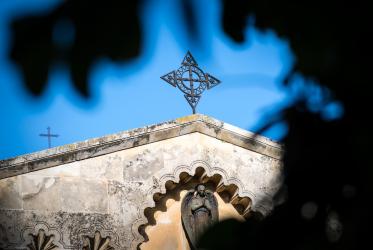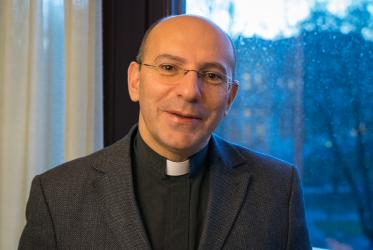Displaying 1 - 20 of 34
A hopeful, but not optimistic Palestinian ecumenist
09 December 2020
WCC pressing ahead with disarmament work
28 August 2019
Shabbat dinner ‘helps humanize two sides of the story’
27 March 2019
Fr Alexi - a peacemaker in Syria
21 December 2018
A moment in ‘Time’: an interreligious vision in Erlangen
20 December 2018
Ecumenical accompaniers share observations with EU
11 February 2018
Trying to do good for the world
18 December 2017
Women in development create space for hope in Egypt
15 June 2017
The child in the manger and the war in Syria
22 December 2016
Strong bridges needed more than ever
21 December 2016
Owe Boersma will strive for equilibrium as EAPPI coordinator
18 August 2016














